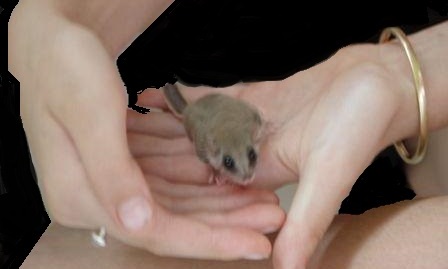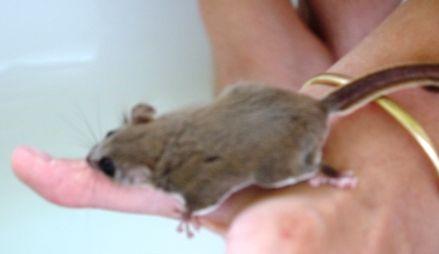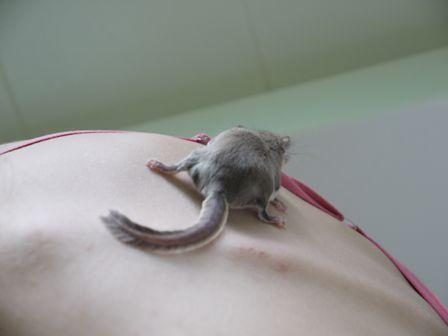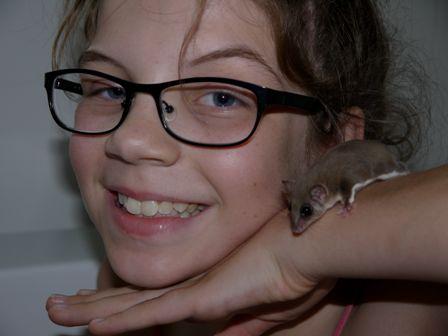FEATHERTAIL GLIDERS ARE THE MOST ATTRACTIVE ANIMALS – warm, energetic, bouncy, enormous eyes, a feather for a tail and able to curl up in the palm of hand.

They glide 20+m between trees. They are hard to find but are actually common in the Moggill Creek catchment.
Our neighbours about a kilometre away had been given a family of Feathertail Gliders that had been rehabilitated for by local Moggill wildlife carers for soft release back into the bush.
Soft releasing involves allowing the gliders to settle into the local environment in an aviary for a number of weeks. They typically feed on local flowering plants, mealworms, etc to build strength in readiness to be released back into the wild.
The aviary is then opened over a succession of nights, allowing them to explore the area but to return if desired for food and shelter during the day. This allows them to transition to fully wild animals quickly, but at their own pace.

But this time we struck an unlikely problem!
After a week or two, the local Boobook Owls (also very common) started visiting nightly. They would sit in front of our neighbour’s aviary and call loudly, surely attracted by the potential food.
It made for great photos of the Owls, but also made it impossible to release the gliders!
I was asked if we could move the gliders to my aviary (remember over a kilometre away) and release them away from the Boobooks.
Wonderful!! … I love gliders and although I had heard Bookbooks regularly calling in the distance, I had never heard them close to my house. After settling the gliders into my aviary, I kept them for two days and then planned to release them.

Soon after dusk on the planned release night, my daughter Nadia came to me and said that she could hear a scary blood curdling screaming sound in our back yard.
When we went to investigate we discovered an incredible family of five amazing Boobook Owls surrounding the aviary almost taunting the gliders to come out and play.
Not the night to release we decided, but I continue to ask myself some questions:
- How did the Boobooks track the Feathertail Gliders from over a kilometre away when the Feathertails are so tiny and spend most of their time tucked up in their hollow nest box?
- Can the Owls hear something that we can’t? Is it a smell?
- If the Owls have senses this sensitive and effective, how does any wild glider, mouse or insect have a chance to survive each night?

We released the gliders a few nights later and regularly hear the Boobooks in the distance. Now that the gliders have departed, the Boobooks are never as close or loud as the night of the planned release…..

